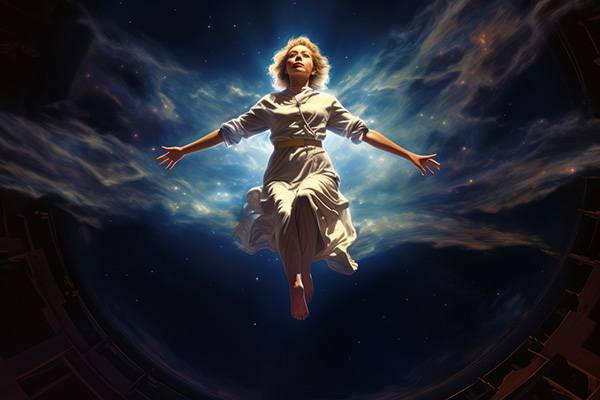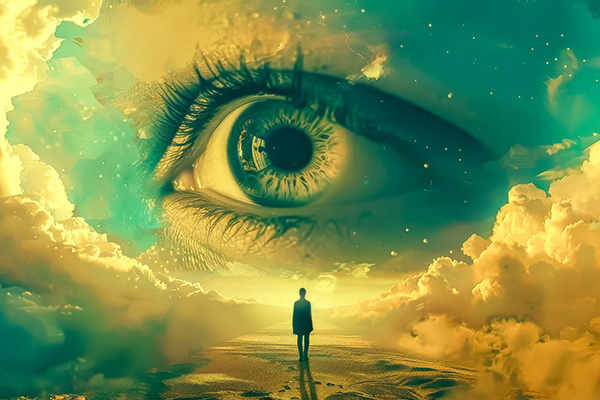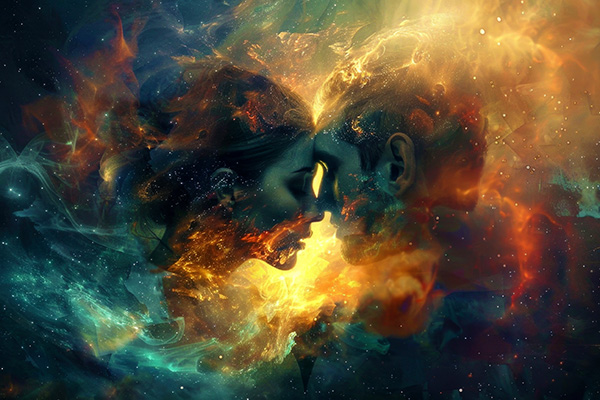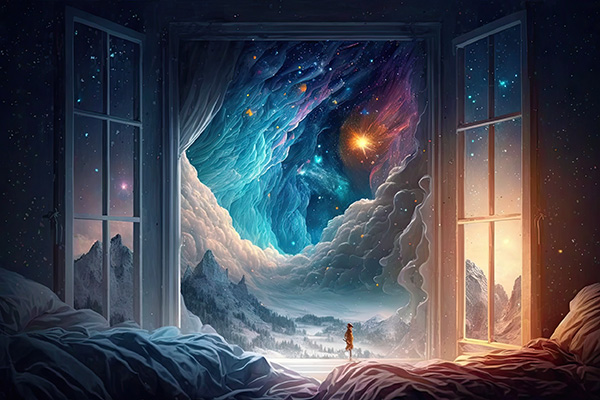lucid dream
Why Astral Projection Is A Popular Psychic Practice
 Years ago, my best friend told me that she was having what she described as “floating experiences.” She said that, as she was winding down for the night in bed, she would suddenly feel as though her spirit were drifting above her body. She was really unsettled by this at the time, because she was not trying to make it happen, nor did she feel in control of it.
Years ago, my best friend told me that she was having what she described as “floating experiences.” She said that, as she was winding down for the night in bed, she would suddenly feel as though her spirit were drifting above her body. She was really unsettled by this at the time, because she was not trying to make it happen, nor did she feel in control of it.
At the time, I was deeply involved in psychic development. I spent my evenings buried in books, engaged in discussions, and exploring various spiritual practices.
The moment she described her experiences, I knew exactly what she was talking about. I realized she was describing astral travel. It was nothing new to me, as I had been practicing it myself for quite some time.
Astral travel is the experience of your mental awareness, or your “conscious self,” separating from your physical body and exploring other realms of existence. It’s the experience of your inner being, your soul or spirit, moving beyond the limits of time and space and the restrictions of the material world.
Once you “leave” your physical body, earthly rules no longer apply. Gravity and distance as we know it no longer apply. Some travelers report visiting faraway places on Earth, while others explore entirely different realms or even other planets. For many, this experience proves that we are more than flesh and bone. We are souls with vast potential.
A Beginner’s Guide To Astral Projection
 Every spiritual tradition speaks of a world beyond our own — an ethereal realm that exists just beyond the veil of the physical senses. Whether it’s Nirvana in Buddhism, Asgard in Norse mythology, or the Elysian Fields of the ancient Greeks, these higher dimensions are seen as places of transcendence and divinity.
Every spiritual tradition speaks of a world beyond our own — an ethereal realm that exists just beyond the veil of the physical senses. Whether it’s Nirvana in Buddhism, Asgard in Norse mythology, or the Elysian Fields of the ancient Greeks, these higher dimensions are seen as places of transcendence and divinity.
Traditionally, such realms are associated with the afterlife, but that’s only part of the story. The truth is that we don’t have to die to access them. These higher planes of existence can be explored while we are still very much alive.
While mystics, shamans, and seers have spoken of these realms for millennia, modern science, particularly in the fields of quantum theory and consciousness studies, is beginning to acknowledge the possibility of multiple dimensions, parallel realities, and alternate timelines. Phenomena such as déjà vu or lucid dreaming, for example, may be brief collisions between timelines or conscious overlaps with other dimensions where versions of ourselves already exist.
So how do we consciously access these mystical realms? The practice of astral projection — also known as astral travel, out-of-body experiences, or lucid voyaging — is one way to do just that.
The idea of consciously traveling beyond the physical body has appeared in various cultures and spiritual traditions throughout history. Although interpretations vary, many civilizations have incorporated the concept into their myths, religious practices, and mystical philosophies.




